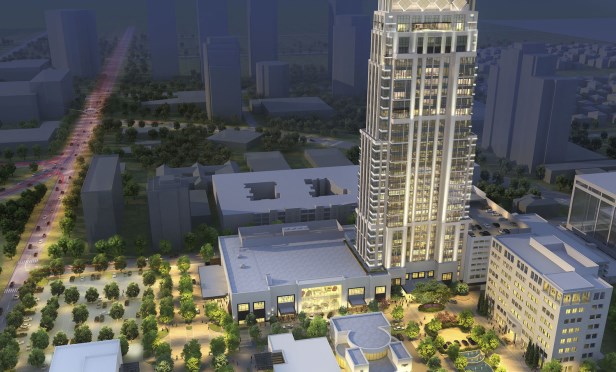© Touchpoint Markets, All Rights Reserved. Request academic re-use from www.copyright.com. All other uses, submit a request to [email protected]. For more inforrmation visit Asset & Logo Licensing.
Energy Sector Bounces Back, Hotels Follow
There is a high level of interest in Houston, having recovered from the 2014 downswing, and its strength reflects resurgent domestic energy demand, along with a more diversified economy in recent years.
Events
- Real EstateGlobeSt. ELITE Women of Influence (WOI) 2025July 21, 2025 - DenverGlobeSt. Women of Influence Conference celebrates the women who drive the commercial real estate industry forward.More Information
- Real EstateGlobeSt. Multifamily Fall 2025October 15, 2025 - Los AngelesJoin the industry's top owners, investors, developers, brokers & financiers at THE MULTIFAMILY EVENT OF THE YEAR!More Information
Recommended Stories
Office Conversions Gain Momentum Amid Persistent Vacancies
By Kristen Smithberg | June 25, 2025
Office occupancy is unlikely to increase in the near future.
BFR Demand Accelerates as Renters Seek Affordability, Flexibility
By Kristen Smithberg | June 13, 2025
Millennials represent a key demographic driving the BFR market.
Multifamily Construction Surges in Low-Density Regions as Big Cities See Declines
By Philippa Maister | June 10, 2025
Single-family construction growth slowed across all markets in the first quarter.
Resource Center

Report
Sponsored by TheGuarantors
2025 State of Renter Delinquency and Default
Renter default is a critical challenge. This report, based on a survey of 400+ multifamily professionals, reveals key trends, economic drivers, and mitigation gaps to help you build resilience in 2025. You'll gain insights into the root causes of renter default, the operational strains it can put on your portfolio, and strategies you can leverage to protect your investments and maintain stability.

Assessment
Sponsored by Building Engines
CRE Property Management Assessment: Your Building Operations Scorecard
How do your building operations measure up? Use this detailed scorecard to evaluate your operational approach across five key areas.

White Paper
Sponsored by TheGuarantors
5 Strategic Moves to Protect Your Multifamily NOI in 2025's Squeeze
Skyrocketing economic uncertainty means it’s essential for multifamily owners and operators to strengthen risk mitigation capabilities. Discover expert insights from industry experts, including the President of NMHC, to tackle 2025 challenges such as slower lease-ups, cost pressures, renter fraud, high reliance on concessions, and more.





